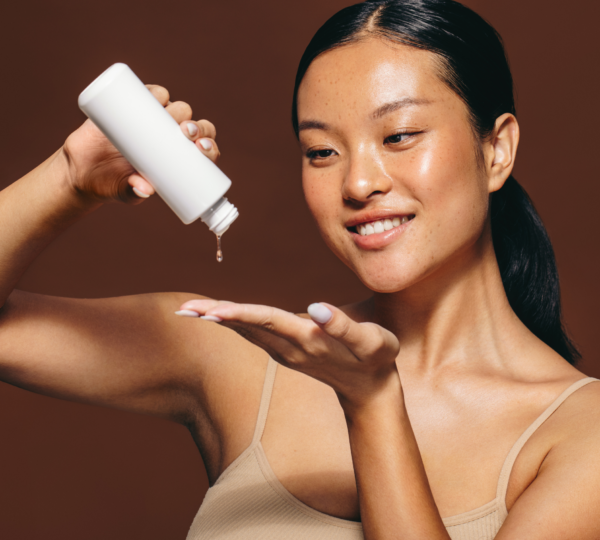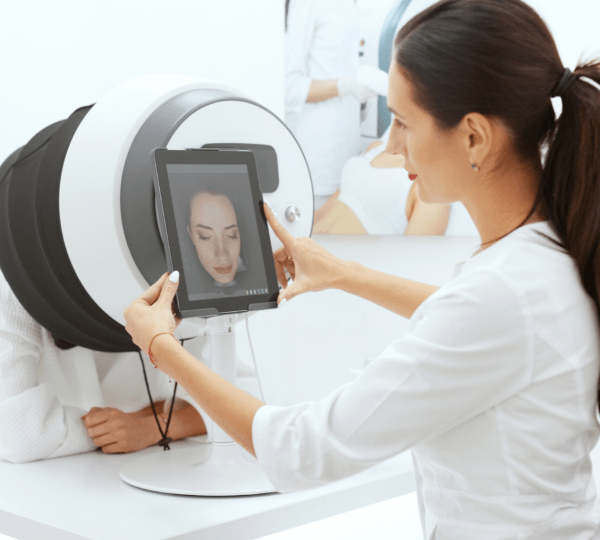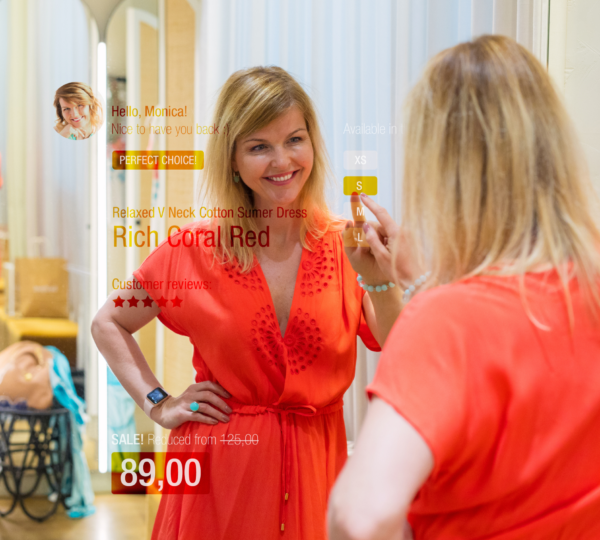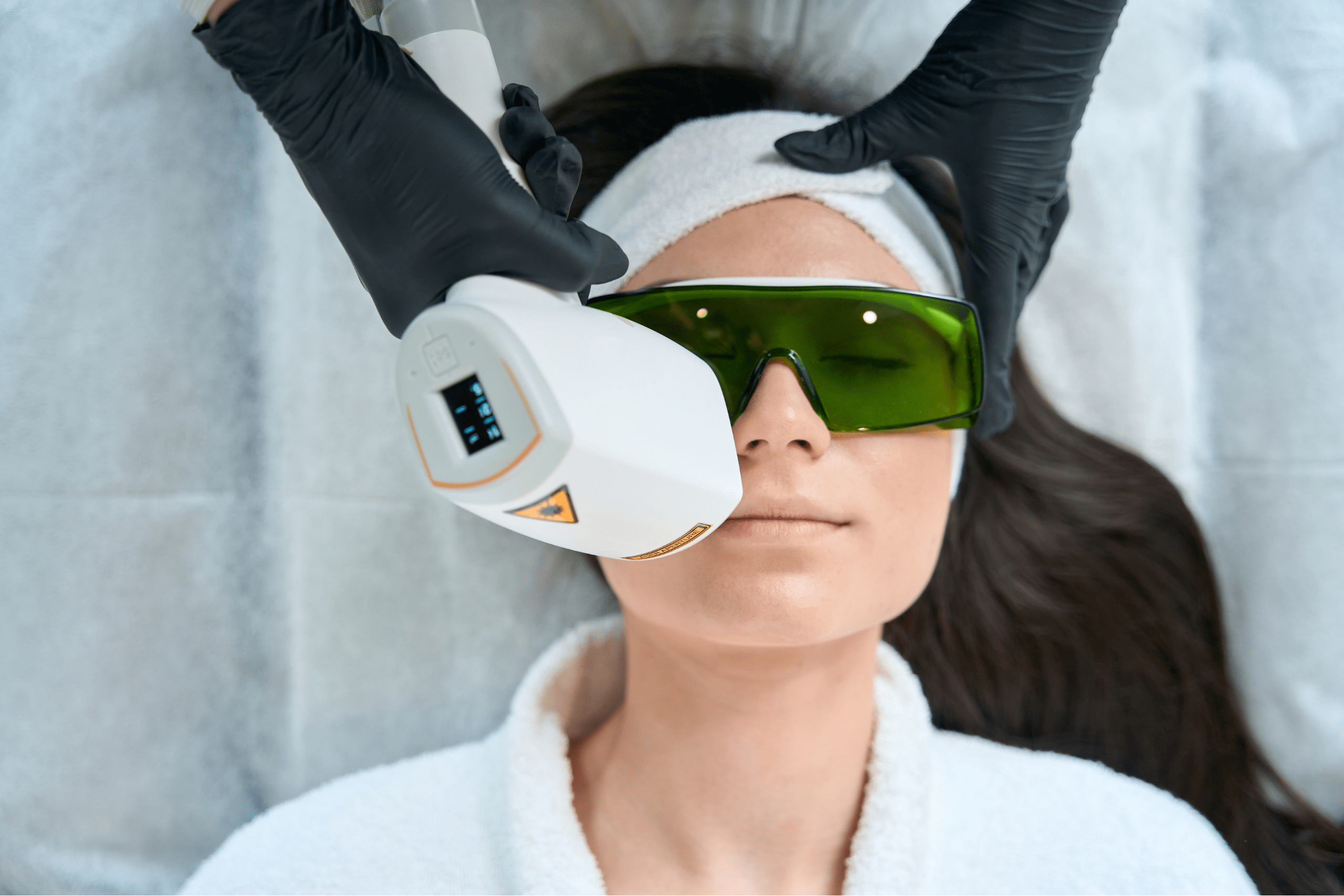
The Future is Now: Tech-Driven Skincare Innovations of 2025
Discover how artificial intelligence, smart devices, and digital innovations are revolutionizing skincare routines in 2025. Learn which technologies actually work and how to incorporate them into your existing routine.
Key Takeaways
- Understand the latest skincare technology trends
- Learn how AI is personalizing skincare
- Discover smart devices worth investing in
- Find out how to combine tech with traditional routines
- Get expert tips on digital skin analysis
Related: New to skincare? Start with our [Beginner’s Guide to Skincare] for the basics before exploring tech solutions.
When Lisa first tried her friend’s new AI-powered skincare device, she was skeptical. How could a small gadget possibly know more about her skin than she did? But after seeing her friend’s transformed complexion and hearing about the personalized routine the device had created, she decided to dive into the world of high-tech skincare. Three months later, she’s never looking back.
The Rise of Smart Skincare
Note: Always verify that tech devices are FDA-cleared when applicable.
Current Technology Landscape
- AI-powered skin analysis
- IoT-connected devices
- Personalized formulation systems
- Virtual dermatologist consultations
Want a simpler approach? Check out our [Evening Rituals Guide] for traditional but effective routines.
Key Technologies Transforming Skincare
1. AI Skin Analysis
Modern AI systems can:
- Detect early signs of conditions
- Track treatment progress
- Predict future concerns
- Recommend personalized products
Safety Note: AI recommendations should be verified with a healthcare provider.
2. Smart Devices
Latest innovations include:
- LED therapy masks with programmable treatments
- Ultrasonic cleansing devices
- Microcurrent toning tools
- Nano-mist hydration systems
For eco-friendly options, see our [Sustainable Skincare Guide] for green beauty tech.
Understanding the Science
How AI Analyzes Your Skin
- Deep learning algorithms
- Spectral imaging
- Moisture level sensing
- Barrier function analysis
Data-Driven Results
Research shows tech-assisted routines can:
- Improve product efficacy by 45%
- Reduce product waste by 60%
- Increase satisfaction by 80%
Popular Tech Tools for Home Use
Smart Mirrors
Features include:
- Daily skin analysis
- Progress tracking
- Product effectiveness monitoring
- Environmental impact alerts
Safety Note: Smart device recommendations should complement, not replace, professional medical advice.
Mobile Apps
Capabilities:
- Skin condition tracking
- Product ingredient analysis
- Routine optimization
- Virtual try-on
Connected Devices
Latest innovations:
- Smart serum dispensers
- UV exposure trackers
- Hydration monitors
- Temperature-adjusting tools
Integrating Tech with Traditional Skincare
Hybrid Approaches
Combine our [Morning Skincare Guide] techniques with these tech solutions:
- Smart product application
- Digital tracking systems
- Connected beauty tools
- AI-optimized timing
Professional Integration
How Experts Use Tech
- Advanced diagnostic tools
- Treatment tracking
- Result prediction
- Custom protocol creation
Privacy and Security
Data Protection
Important considerations:
- Skin data encryption
- Secure storage
- User control
- Anonymous analytics
Cost-Benefit Analysis
Investment Considerations
- Initial device costs
- Long-term savings
- Result improvement
- Time efficiency
Future Developments
Coming Soon in 2025
- DNA-based skincare
- Microbiome analysis
- Quantum sensing
- Neural feedback systems
Expert Tips for Tech Integration
Getting Started
- Begin with basic analysis tools
- Add one device at a time
- Track results systematically
- Maintain traditional care basics
Common Mistakes to Avoid
- Overrelying on technology
- Ignoring skin sensitivity
- Skipping patch tests
- Neglecting basic care
References
- Journal of Digital Dermatology (2024). “AI in Skincare Analysis”
- Tech Beauty Review (2025). “Smart Device Evolution”
- International Journal of Cosmetic Science (2024). “Digital Innovation in Skincare”
- Dermatology Technology Quarterly (2025). “Future of Tech-Driven Beauty”
- Beauty Tech Report (2024). “Consumer Adoption of Smart Skincare”
IMPORTANT DISCLAIMER
This article is for informational purposes only and does not constitute medical advice. While skincare technology can provide valuable insights, it should not replace professional medical consultation. Always consult with a qualified dermatologist or healthcare provider before starting any new skincare routine or using new devices. They can provide personalized advice based on your specific skin type, concerns, and medical history. If you experience any adverse reactions to products or devices, discontinue use immediately and seek medical attention.
Related posts:
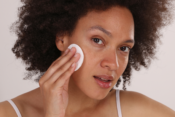 The Complete Beginner’s Guide to Starting Your First Skincare Routine in 2025: Everything You Need to Know
The Complete Beginner’s Guide to Starting Your First Skincare Routine in 2025: Everything You Need to Know
 The Ultimate Gen Z Guide to Treating Skin Concerns in 2025: Skincare That Actually Works
The Ultimate Gen Z Guide to Treating Skin Concerns in 2025: Skincare That Actually Works
 Fall Skincare Tips: How to Transition Your Routine for Colder Weather
Fall Skincare Tips: How to Transition Your Routine for Colder Weather
 Evening Rituals: The Ultimate Night Skincare Guide for 2025
Evening Rituals: The Ultimate Night Skincare Guide for 2025

